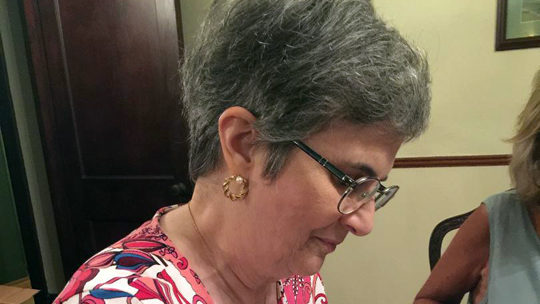As promised, here’s an excerpt from Chapter 2 of Bridges to Consensus, Chapter, pp. 14-15:
Just as we all agree that we should drive carefully, defensively and alertly, we embrace basic principles of how to deal with one another. Many religious leaders, philosophers and sages have pronounced a Golden Rule of Love—we should treat others as we ourselves would like to be treated.
Judaism teaches, “[L]ove your neighbor as yourself.”[1]
Jesus is described as honoring this teaching and illustrating it with the parable of The Good Samaritan, suggesting a broad view of who our neighbors are.[2]
One of the teachings attributed to Muhammad is that a Muslim owes six duties to a Muslim, one of which is, “He should love for him what he loves for himself.”[3]
Buddha said, “A generous heart, kind speech, and a life of service and compassion are the things which renew humanity.”
The Hindu scriptures teach: “What is the value of eyes in which there is no kindness? Kindness is the real wealth.”[4]
A Unitarian Universalist affirmation, called the Williams Covenant, states: “Love is the doctrine of this church; the quest for truth is its sacrament; and service is its prayer.”
You might say that the Golden Rule is the moral equivalent of “Drive carefully.” Yet people, even people of the same faith, differ about what love looks like in various situations. They differ about how they themselves would like to be treated. Many of these differences pertain to how we speak to one another.
Take Charlie, the chair of a congregational committee on ministering to the homeless. He’s a great organizer and works hard but frequently mispronounces words such as “indigent” and “philanthropy.” He will soon attend an inter-denominational meeting where he is likely to use these terms in front of people from other congregations.
- One member of his committee, Abby, feels it’s most loving to ignore the gaffs.
- Bert favors waiting until Charlie hasn’t said “in-DYE-gent” for awhile, then working the word, properly pronounced, into his conversation.
- Darlene thinks it’s more loving to gently call the error to Charlie’s attention in a private moment.
- Ethan feels a private talk would be more embarrassing, making too big a deal of the mistake; he favors correcting Charlie in a matter-of-fact way the next time he mispronounces a word during a meeting; “Hey, Charlie, that’s INdigent.”
- Nell wants to consult with one or two other members before deciding what, if anything, to do. If she talks about Charlie with third parties or if they conclude that it would be better for Charlie’s close friend, Hunter, to discuss pronunciation with him, Gary accuses Nell of “triangulation.”
If any of the committee members act on their respective preferences, they might be accused of unkindness by other members. For example, if Darlene takes Charlie aside for a private talk, Ethan might accuse her of embarrassing Charlie by making too big a deal of the matter. If Ethan corrects Charlie in a meeting, “Hey, Charlie, that’s INdigent,” Nell may accuse Ethan of being unkind. And either of those approaches might offend Charlie if his preference is for someone to make a point of pronouncing the word correctly during meetings.
If people of a congregation can disagree on how each would like to be treated if they were Charlie, imagine what happens when family, friends, neighbors or co-workers differ on how they would like to be treated?
As you know, the foundation of our consensus building system is identifying and talking about both parties’ interests. To uncover Charlie’s interests, one might ask him, “How would you like to come across in the interdenominational meeting?” Or “How would you like the other people in the interdenominational meeting to think of us after the meeting is over?”
If Charlie says, “I’d like them to respect us and to know that we aren’t a bunch of crackpots and weirdos,” that suggests that he would want to know if he’s mispronouncing certain words. The other committee member can then ask permission to make a suggestion on how to make a good impression.
Suppose Charlie answers the question, “I want them to know that we aren’t a bunch of elitist intellectual snobs. We don’t care about people’s backgrounds and status. We value everyone, high or low, rich or poor, brainy or ordinary.” This suggests that Charlie might see the committee members as taking an elitist attitude toward him if they correct his pronunciation. Now, they identify and prioritize their own interests. Keeping Charlie enthused and positive about the committee’s work outweighs whatever embarrassment might occur if he mispronounces something at the meeting. They might either drop the “indigent” issue, like Abby prefers, or take Bill’s approach of casually working “indigent” into a conversation, and leave Charlie to get it or not.
Think back to a time when someone offended you. Can you interpret their behavior as a way of treating you as they would like to be treated? If so, I’d love to hear about it.
________________
[1]Lev. 19:18.
[2]Luke 10:25-37.
[3]Tirmidhi Hadith 24:1.
[4]Cural.

